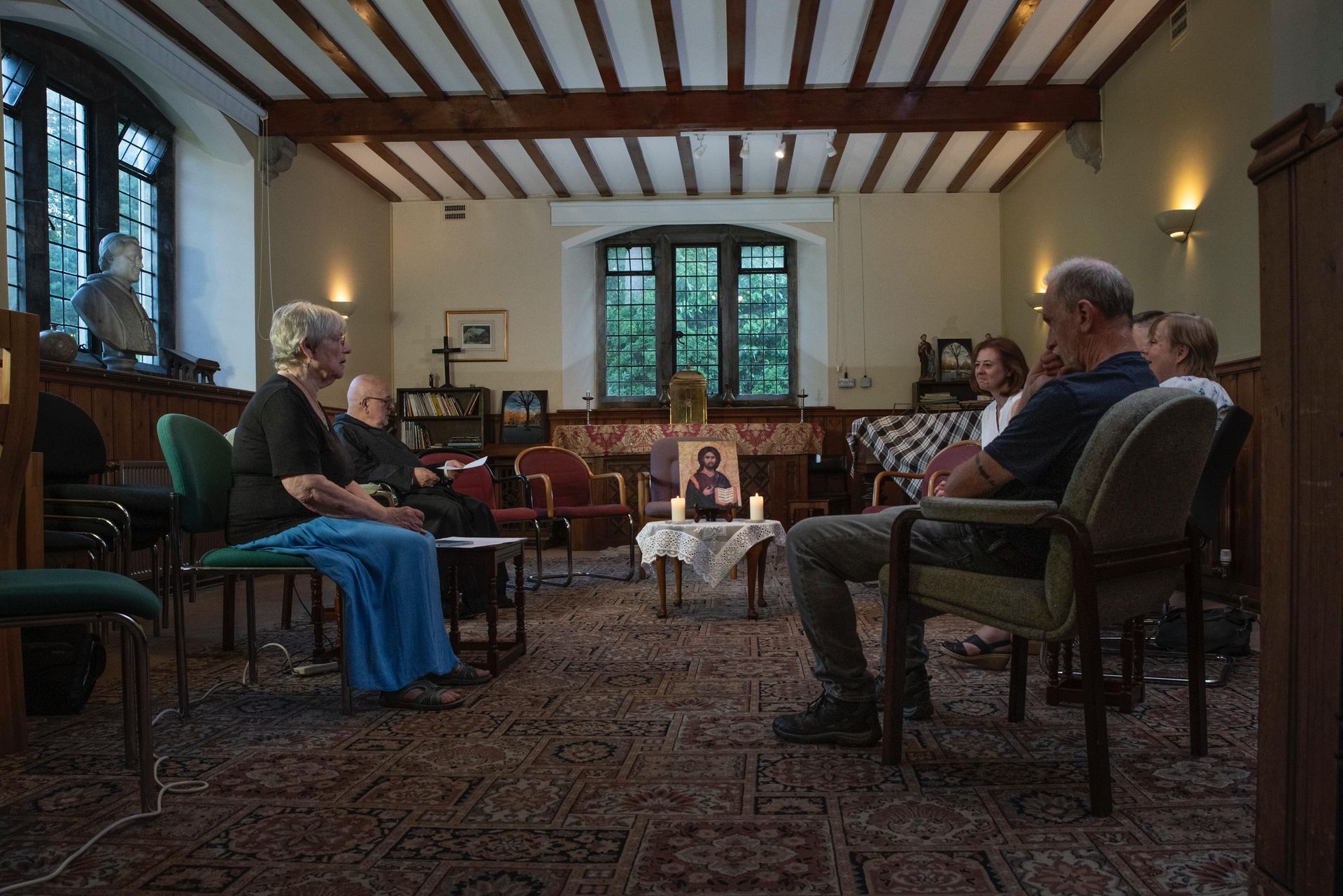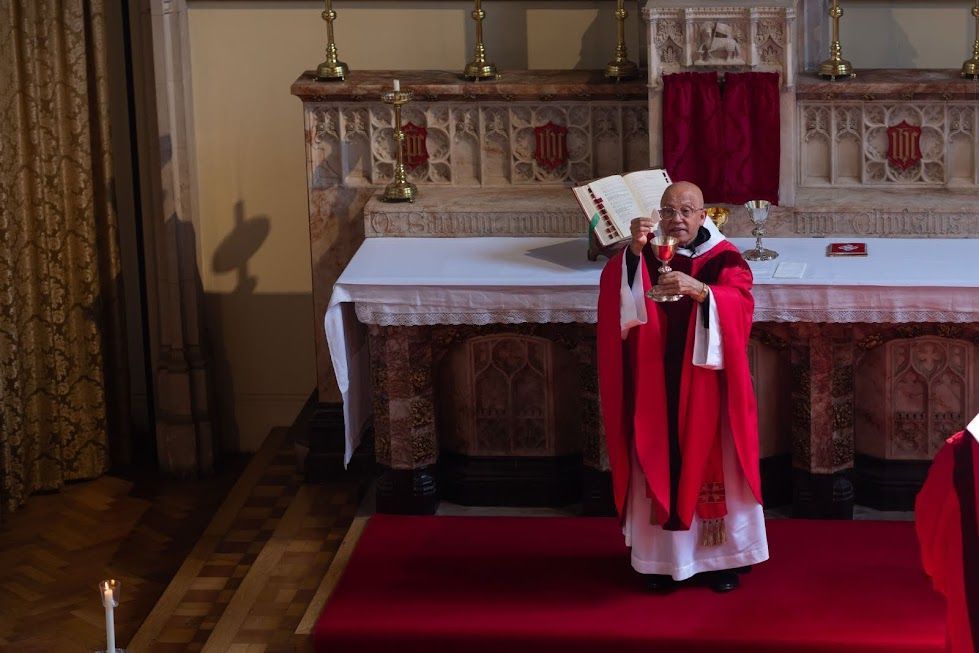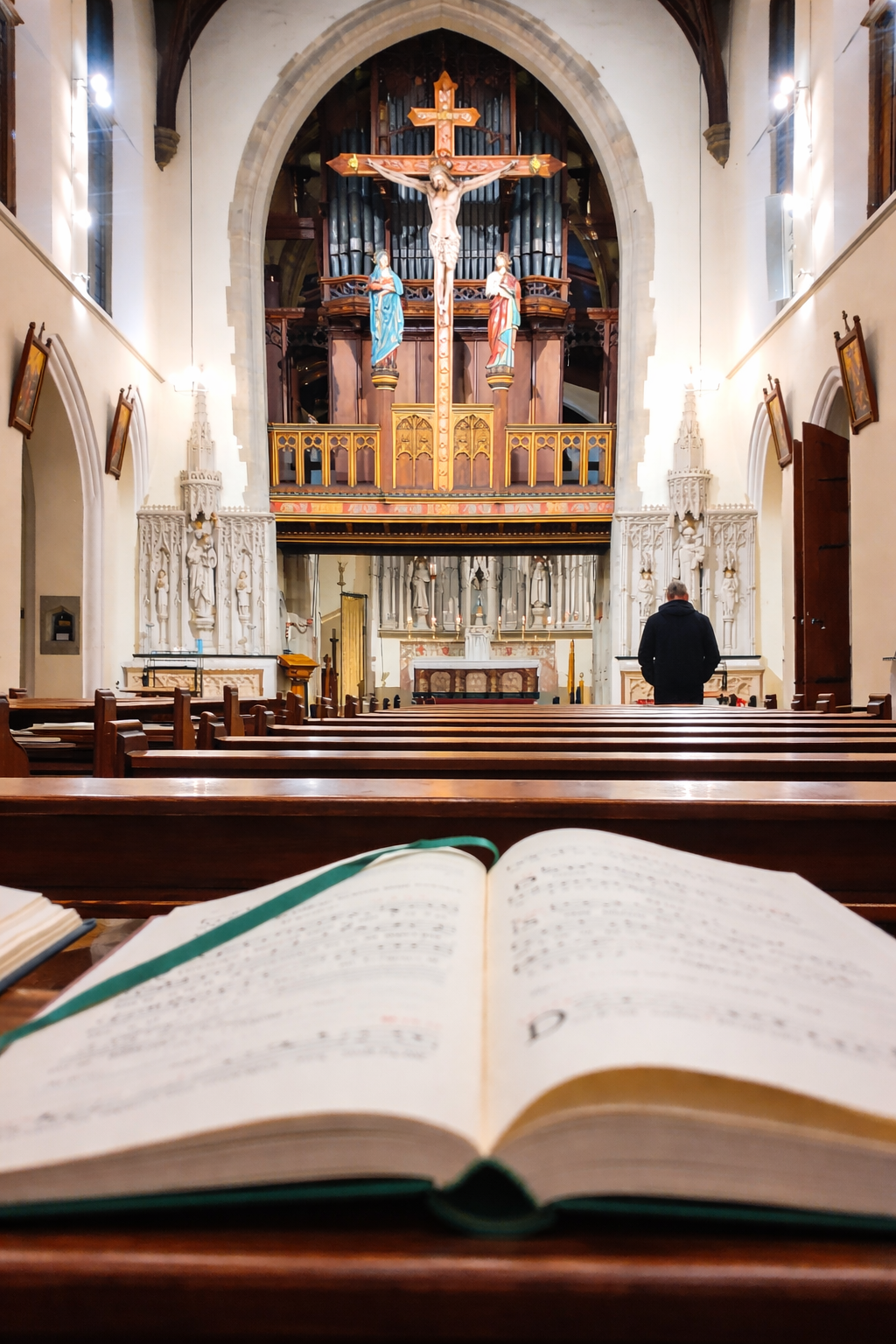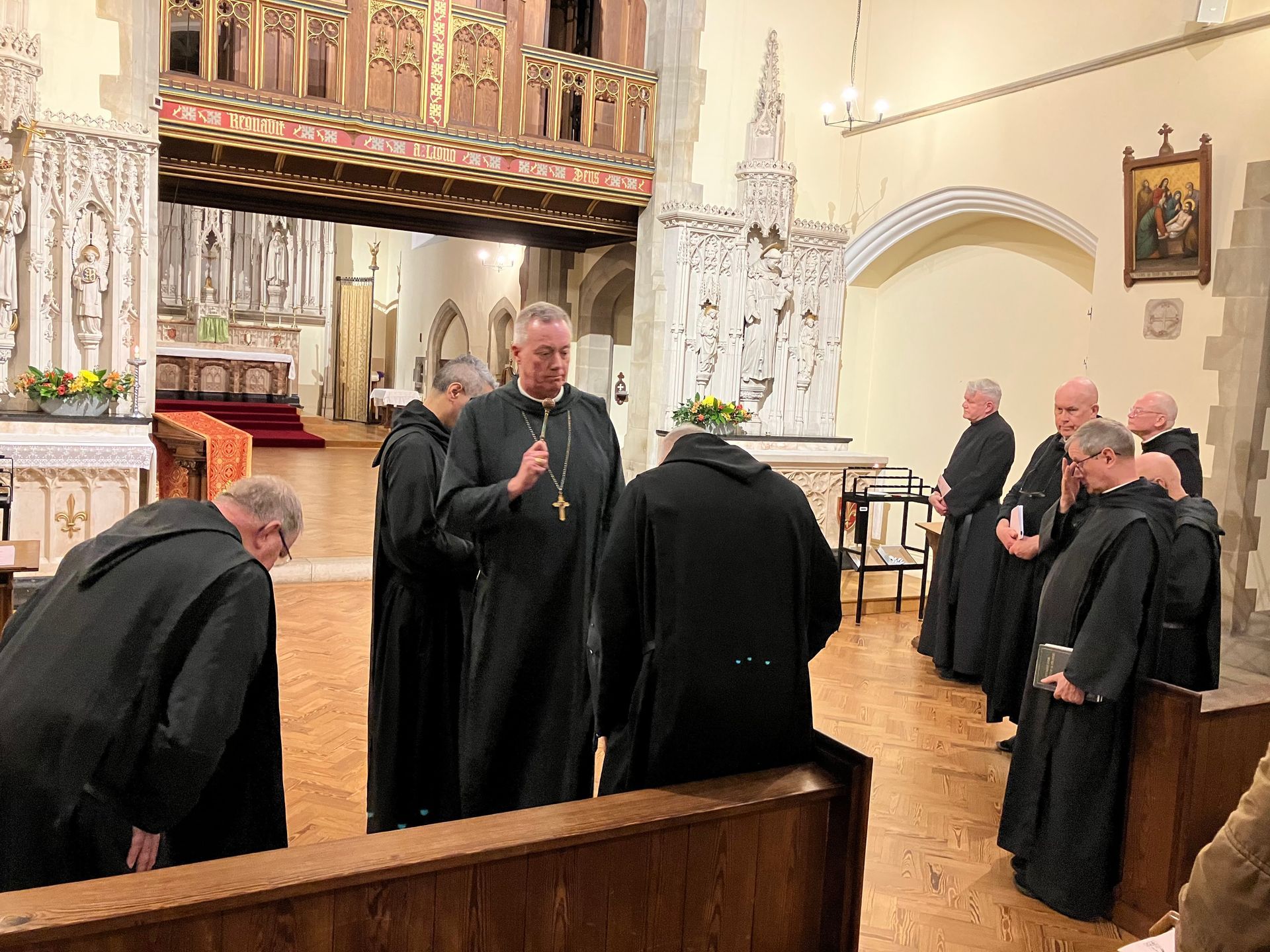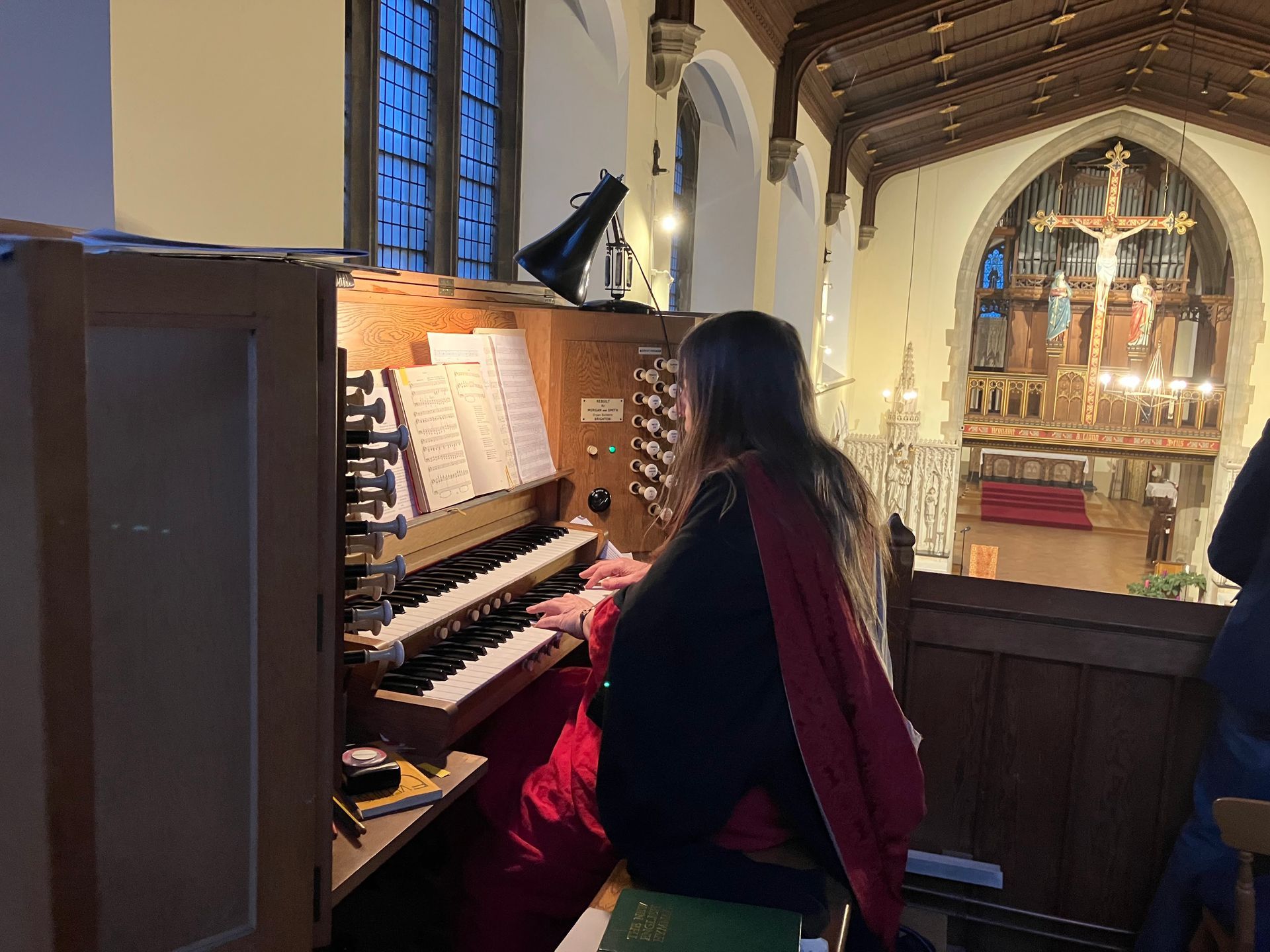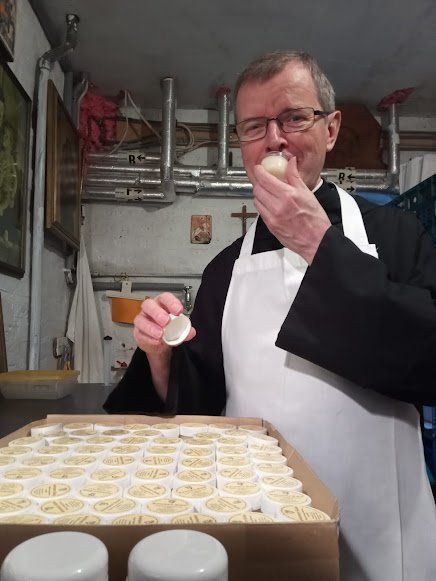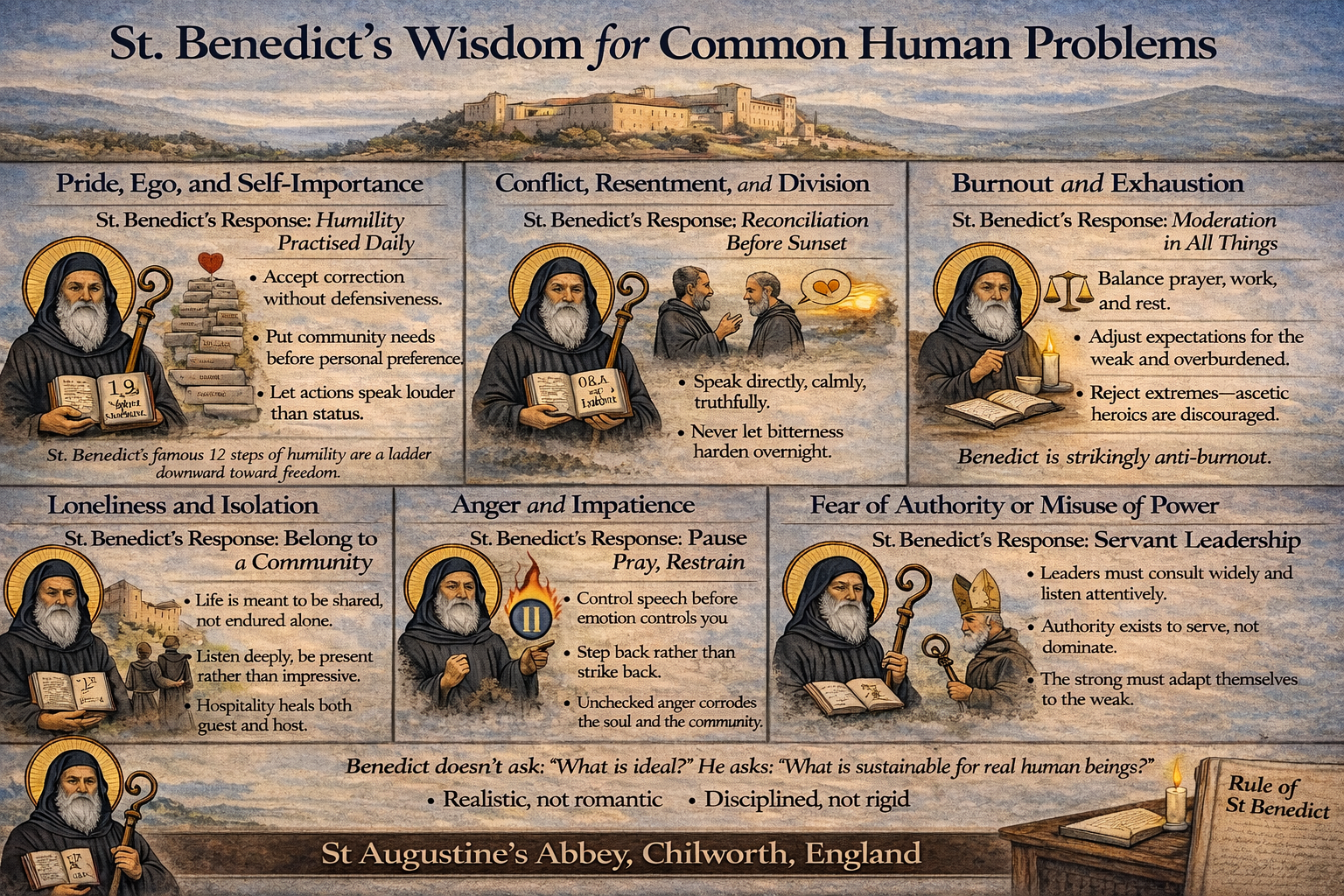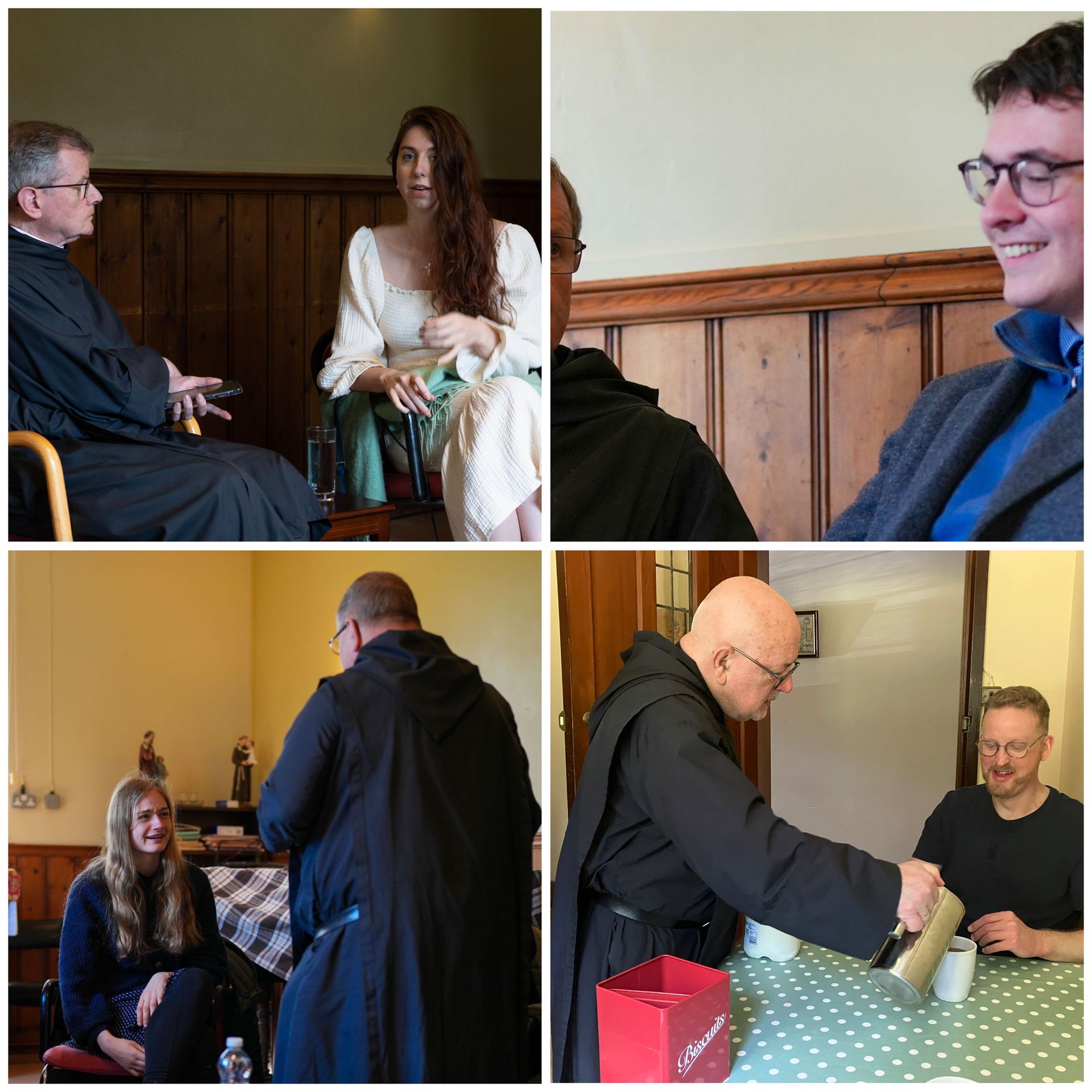What's it like to be in love with God?
Fr John Seddon OSB • 14 February 2021
How does it happen?

WHAT IS IT LIKE TO BE IN LOVE WITH GOD? How does it happen?
Am I 'in love' with God? The answer must be, 'No', not in the usual understanding of being 'in love'.
To be 'in love', as usually understood, for me, refers to erotic love between two people. That wonderful, tumultuous feeling that surges through you, when you meet some one and you know you must connect with him or her. It is expressed best by Shakespeare in Romeo and Juliet.
ROMEO: But soft! What light through yonder window breaks?
It is the East, and Juliet is the sun!
See how she leans her cheek upon her hand!
O that I were a glove upon that hand,
That I might touch that cheek!
Here Romeo's love, while true and sincere, concentrates on Juliet's beauty and demeanour. However, for their loves to grow and deepen together, both must transform their being in love to simply love.
So, what is love, pure and simple?
St Paul defines this love as 'patient, love is kind. It does not envy, it does not boast, it is not proud. It does not dishonour others, it is not self seeking, it is not easily angered, it keeps no record of wrongs. Love does not delight in evil but rejoices with the truth. It always protects, always trusts, always hopes, always perseveres.' 1 Corinthians 13: 4-8
If Romeo and Juliet had not died tragically young, and had been able to develop their love during their, hopefully, long lives; by bearing with each other's faults and bad habits; in patience and kindness, then their love would have become true and strong, not merely the weak, surface attraction that being 'in love' can be.
For me, God's love is as St Paul defines it. How could it be otherwise, given His endless patience and kindness with my slow progress in patience and kindness; and in all the things that He is and I am not, as yet, but I hope I make progress towards, daily.
The 'work shop', as St Benedict puts it, where this progress in love takes place is the monastery. The tools used are 'good works' done for God and my brethren.
But I can only do these 'good works' by receiving, daily God's grace, which is His Life, by reading God's Word and eating His Body and drinking His Blood daily.
In this intimate exchange of God's life and my life, I receive the knowledge that I am unconditionally loved by Him, even when I fail, trip up and make a mess of things. His love is mercy, after all.
Therefore, God's love is far more than being 'in love' with Him.
God's love is called 'agape' in Greek, and He loves, as St Paul has described for us in 1 Corinthians, in the way that we all need to be lovedmost of all: a way far beyond being 'in love'.
When does this begin or 'happen' as the questioner has put it?
When you believe in Jesus. When you accept “Jesus Christ loves you; he gave his life to save you; and now he is living at your side every day to enlighten, strengthen and free you.” as Pope Francis puts it.
This is why God's love for us is so far beyond being 'in love' with us.
Who, among all the people I have loved and have loved me, gave his or her life for me? Only Jesus.
Not only does He give His life for me, He unites Himself to my being in a way far more intimate than any two human beings can ever achieve.
In fact He is nearer to me than I am to myself, because as St Paul says. 'In him we live and move and have our being'. Acts 17:28
Nicholas Cabasilas in his Life in Christ expresses it this way, 'God's love so far surpasses any human love that the union into which he draws His lovers is beyond all human comprehension and will bear no comparison whatever.'
By Fr John Seddon OSB, Benedictine monk at St Augustine's Abbey, Chilworth





